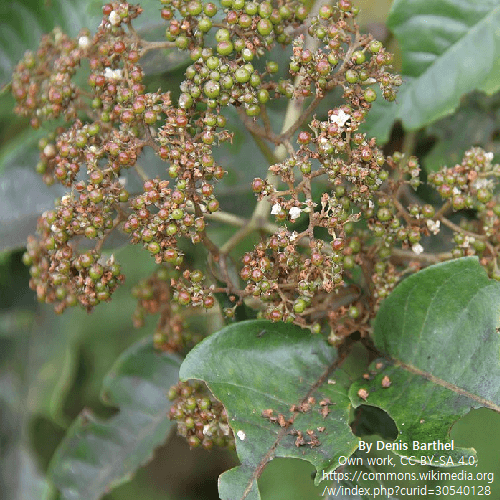
Haronga
Scientific names: Harungana madagascariensis, Haronga madagascariensis
Family: Clusiaceae/Guttiferae
Alternate names: Harongablädder Leaf, Harongarinde Bark, Harungana Madagascariense, Harunganae Madagascariensis Cortex Bark, Harunganae Madagascariensis Folium Leaf, Nketto
Background
Haronga (Harungana madagascariensis) is a tree that grows in tropical parts of Africa. The bark and leaves have been used as medicine.
Haronga might cause the gallbladder, pancreas, and stomach to produce more digestive juices.
People take haronga for indigestion (dyspepsia), pancreas problems, and liver and gallbladder disorders, but there's no good scientific evidence to support these uses.
Haronga might cause the gallbladder, pancreas, and stomach to produce more digestive juices.
People take haronga for indigestion (dyspepsia), pancreas problems, and liver and gallbladder disorders, but there's no good scientific evidence to support these uses.
Safety Safety definitions
When taken by mouth: There isn't enough reliable information to know if haronga is safe or what the side effects might be.
Pancreas problems: Haronga might make pancreas problems worse. Avoid use.
Gallstones and other gallbladder problems: Haronga might make gallbladder and bile duct problems worse. Avoid use.
Blocked intestines (bowel obstruction): Haronga might cause serious problems in people with blocked intestines. Avoid use.
Special Precautions & Warnings:
Pregnancy and breast-feeding: There isn't enough reliable information to know if haronga is safe to use when pregnant or breast-feeding. Stay on the safe side and avoid use.Pancreas problems: Haronga might make pancreas problems worse. Avoid use.
Gallstones and other gallbladder problems: Haronga might make gallbladder and bile duct problems worse. Avoid use.
Blocked intestines (bowel obstruction): Haronga might cause serious problems in people with blocked intestines. Avoid use.
Effectiveness
Effective Effectiveness definitions
There is interest in using haronga for a number of purposes, but there isn't enough reliable information to say whether it might be helpful.
Dosing & administration
There isn't enough reliable information to know what an appropriate dose of haronga might be. Keep in mind that natural products are not always necessarily safe and dosages can be important. Be sure to follow relevant directions on product labels and consult a healthcare professional before using.
Interactions with pharmaceuticals
It is not known if Haronga interacts with any medicines. Before taking Haronga, talk with your healthcare professional if you take any medications.
Interactions with herbs & supplements
There are no known interactions with herbs and supplements.
Interactions with foods
There are no known interactions with foods.
vital.ly has licensed monographs from TRC Healthcare.
This monograph was last reviewed on 17/06/2024 10:00:00 and last updated on 24/12/2012 22:41:36. Monographs are reviewed and/or updated multiple times per month and at least once per year.
Natural Medicines disclaims any responsibility related to medical consequences of using any medical product. Effort is made to ensure that the information contained in this monograph is accurate at the time it was published. Consumers and medical professionals who consult this monograph are cautioned that any medical or product related decision is the sole responsibility of the consumer and/or the health care professional. A legal License Agreement sets limitations on downloading, storing, or printing content from this Database. No reproduction of this monograph or any content from this Database is permitted without written permission from the publisher. It is unlawful to download, store, or distribute content from this site.




